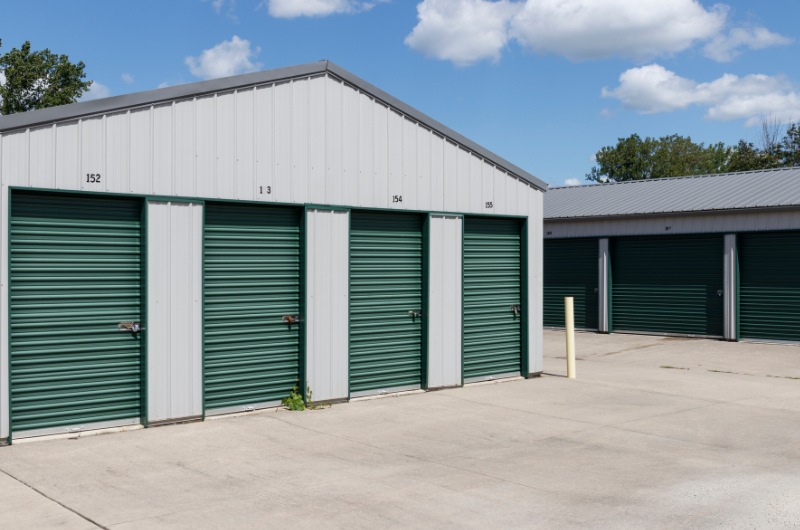In a world where flexibility and convenience are key, temporary storage solutions have become essential for various needs, from home renovations to out-of-state moves.
Whether you’re a student needing space for the summer, a traveler seeking to store valuables, or a homeowner undergoing renovations, the array of temporary storage options available today can cater to every unique requirement.
This article delves into temporary storage units, highlighting the services of temporary storage companies and the sizes of storage units available.
With a focus on short-term storage options and secure temporary storage facilities, we aim to guide you through renting convenient, affordable, and reliable temporary storage units.
Let’s get started!
What Are Temporary Storage Units?
Temporary storage units are versatile, secure spaces designed for short-term use. They range from small lockers to large rooms, catering to diverse storage needs. Temporary storage unit companies specialize in offering these solutions, providing a range of options to suit different requirements.
Here are some of the benefits of temporary storage solutions:
- Reduced Risk: It’s safer for storing items during uncertain or transitional periods. It minimizes the risk associated with long-term leases or purchases.
- Space Optimization: Temporary storage can help declutter and optimize existing space. It provides a place to store items that are not immediately needed, freeing up valuable space in the primary location.
- Improved Efficiency: Extra storage space, even temporarily, can streamline operations. It aids in better inventory management, faster access to goods, and more efficient use of the main workspace.
- Security: Many temporary storage solutions offer robust security features, protecting your assets from theft, damage, or environmental factors. This aspect is particularly crucial for valuable or sensitive items.
- Mobility: Some temporary storage solutions are mobile, which can be moved to different locations as needed. This mobility is extremely useful for projects spread across multiple sites or for events requiring moving materials.
What Are The Different Types Of Temporary Storage Solutions?
Temporary storage solutions come in various forms to cater to different needs, whether it’s for personal, business, or specific situational use.
Here’s a detailed look at the different types of temporary storage solutions:
1. Self-Storage Units
Self-storage units are the most popular temporary storage solutions. These units are located in a facility where you can store your belongings. You’ll have a key or a code to access your unit, ensuring privacy and security.
Sizes vary, ranging from small lockers to large rooms. These units are ideal for storing items during moves, renovations, or simply to declutter your home.
2. Portable Storage Containers
Portable or mobile storage containers are delivered directly to your location. You can load these containers at your leisure and keep them on your property or have the storage company move them to a secure facility.
These containers are perfect for home renovations, as they provide on-site storage that’s easily accessible. They also offer a convenient option for moving, as they can be transported to your new location when you are ready.
3. Climate-Controlled Storage Units
Climate-controlled storage units are essential for items sensitive to temperature or humidity, such as wooden furniture, musical instruments, electronics, and important documents.
These units maintain a consistent environment to protect your belongings from extreme conditions. They are housed indoors and offer additional protection against dust and pests.
4. Vehicle Storage
Vehicle storage solutions are designed for cars, motorcycles, boats, and RVs. They range from outdoor parking spaces to covered or fully enclosed garages.
This type of storage is particularly useful for those who lack sufficient space at home or require a secure location to store their vehicles during off-season periods or while traveling.
5. Specialty Storage
Specialty storage refers to units designed for specific items such as wine, art, or important archives. These units often have specialized climate control and security features to ensure the optimal preservation of sensitive items. They are used by collectors, galleries, and individuals who require a secure environment for high-value items.
How To Choose The Best Temporary Storage Solution
When selecting the best temporary storage solution for your needs, several key factors should be considered to ensure you make an informed and practical choice. Here’s a breakdown of these factors:
1. Cost
Budget is always a consideration. Compare prices between different storage options and be aware of any additional fees, such as deposits, insurance, or late fees. Some companies offer promotional deals or discounts for longer rental periods, which can be cost-effective for extended storage needs.
2. Size Of The Storage Unit
Many companies offer temporary storage units in different sizes. Consider the quantity and type of items you’re storing.
For instance, a few boxes of clothes and books might only need a small unit, while furniture or appliances might require something larger. Many storage facilities provide size guides, which can be immensely helpful in making this decision.
3. Insurance and Liability
Check if the temporary self storage companies offer insurance options. Understanding the insurance coverage and liability policies is important to protect your belongings against potential damage or loss.
4. Reviews and Reputation
Before choosing a storage provider, research their reputation. Read customer reviews and testimonials to gauge the quality of their service. A provider with positive reviews and a good reputation will likely offer reliable and satisfactory services.
5. Additional Services
Consider any additional services that might be beneficial. Some out of state movers offer moving trucks, packing supplies, or assistance with loading and unloading.
On-demand storage services, which handle the transportation of your items to and from the storage facility, can also be a convenient option.
6. Security
Security is paramount when storing your belongings. Look for storage facilities with strong security measures such as surveillance cameras, gated access, individual alarm systems, and on-site security personnel. This ensures the safety and protection of your items.
How to Safely Store Fragile Items
Storing fragile items requires extra care to ensure they remain intact.
Here’s how to safely store fragile items:
- Use Proper Packing Materials: Wrap the fragile items with durable bubble wrap or packing paper. For extra protection, consider using specialized packing materials designed for fragile objects.
- Cushioning: Place a layer of cushioning material, such as foam or packing peanuts, at the bottom of boxes containing fragile items.
- Stack Carefully: When placing boxes in your storage unit, stack heavier items at the bottom and fragile items on top. Be cautious not to stack too high to avoid crushing delicate items.
- Vertical Storage: Store fragile items vertically whenever possible. This reduces the risk of items being crushed under the weight of others.
- Create Aisles: Leave clear pathways in your storage unit so you can access items at the back without moving everything in front.
Frequently Asked Questions
Is My Stuff Safe in Temporary Storage?
Reputable storage facilities prioritize security. They often have security features like gated access, surveillance cameras, individual unit alarms, and on-site staff. You can also purchase insurance for added protection. Choosing a facility with robust security measures is crucial to ensure your items are safe.
How Long Can I Use Temporary Storage?
The duration of temporary storage is flexible. Some facilities offer month-to-month leases, allowing you to store items for as long as you need without a long-term commitment.
Others may offer discounts for longer-term contracts. You can typically extend or terminate your rental as necessary.
Can I Access My Stored Items Whenever I Want?
Access to your stored items depends on the storage facility’s operating hours. If frequent access is essential, choose a facility with extended access hours.
How Much Does Temporary Storage Cost?
The temporary storage cost varies based on location, unit size, duration, and additional services. It’s essential to compare prices and inquire about extra fees, such as security deposits, administration fees, or insurance costs. Look for facilities that fit your budget while providing the services you need.
Do I Need Insurance for My Stored Items?
While some homeowner’s or renter’s insurance policies cover items in storage, it’s crucial to verify this with your insurer. Storage facilities often offer insurance plans for an additional fee, providing added protection for your belongings. Consider insurance for peace of mind.
Conclusion
Selecting an appropriate temporary storage solution need not be a daunting task. You can make an informed decision suitable for your particular circumstances if you know the various sizes and characteristics of storage units, the security measures in place, and the different types of temporary self-storage solutions.
Whether the storage solution is for decluttering, a move, or business purposes, the range of temporary storage options available ensures there’s a solution for every need.
We hope this post helped you learn more about temporary storage solutions.
Happy moving!




